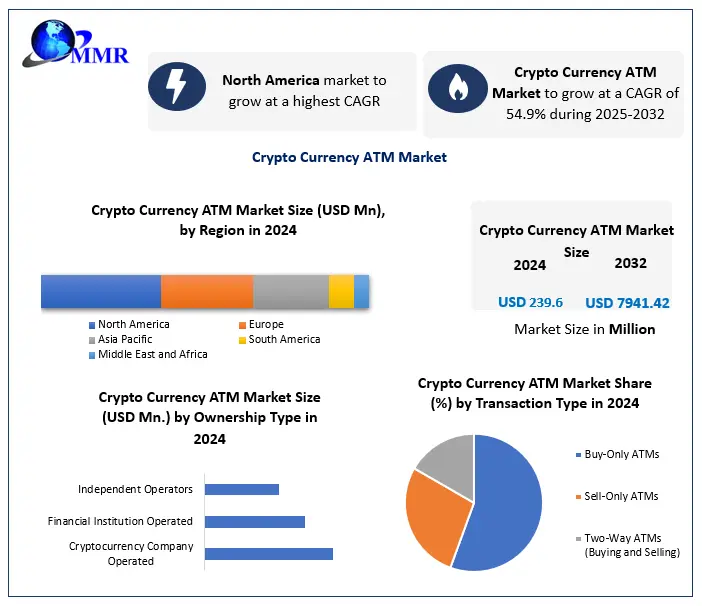Bodrum Escapes: Your Guide to Luxury and Leisure
Explore the best of Bodrum with exclusive insights and tips for an unforgettable experience.
Riding the Wave: What the Future Holds for Virtual Currency Trends
Discover the future of virtual currencies! Explore emerging trends that could reshape the digital finance landscape—are you ready to ride the wave?
The Rise of Decentralized Finance: Transforming the Future of Virtual Currencies
The advent of Decentralized Finance (DeFi) is reshaping the landscape of virtual currencies by offering users greater control over their financial assets. Unlike traditional finance that relies on centralized institutions, DeFi platforms enable peer-to-peer transactions and eliminate intermediaries, thus reducing costs and increasing accessibility. With the rise of smart contracts, users can engage in various financial activities, such as lending, borrowing, and trading, all without the need for a traditional bank. This paradigm shift not only democratizes finance but also opens up new opportunities for innovation within the cryptocurrency space.
Furthermore, the growth of DeFi has led to the emergence of various platforms and tools that enhance user experience and security. For instance, liquidity pools and automated market makers (AMMs) have revolutionized how users can trade and invest in virtual currencies, allowing for greater market efficiency and lower barriers to entry. As interest in decentralized finance continues to soar, it is crucial for investors and enthusiasts to stay informed about emerging trends and best practices. By doing so, they can fully leverage the potential of DeFi, transforming the future of virtual currencies and ushering in a new era of financial independence.

Counter-Strike is a popular tactical first-person shooter game that pits teams of terrorists against counter-terrorists. Players can enhance their gaming experience by utilizing various strategies and skills. If you're looking to gain an advantage, be sure to check out the csgoroll promo code for exclusive in-game benefits.
Understanding CBDCs: What Central Bank Digital Currencies Mean for the Virtual Currency Landscape
Understanding CBDCs is crucial as they represent a significant evolution in the virtual currency landscape. Central Bank Digital Currencies (CBDCs) are digital forms of a country's fiat currency, issued and regulated by the nation's central bank. Unlike cryptocurrencies such as Bitcoin or Ethereum, which are decentralized and operate on blockchain technology, CBDCs aim to combine the benefits of digital currencies with the stability of traditional government-backed money. This innovative approach has the potential to streamline financial transactions, enhance monetary policy implementation, and broaden financial inclusion, making banking services more accessible to the unbanked population.
The introduction of CBDCs could reshape the payment ecosystem and pose challenges to existing financial institutions. For instance, as CBDCs become more prevalent, traditional banks may face increased competition from central banks in offering payment services. Furthermore, with their potential for instantaneous transactions, CBDCs could accelerate the movement towards a cashless society, transforming consumer behavior and spending habits. Stakeholders across the financial sector must pay attention to this trend, as understanding the implications of CBDCs could be vital for adapting to the evolving landscape of virtual currencies.
Will Virtual Currencies Ever Replace Traditional Money? Exploring the Future of Digital Transactions
The rise of virtual currencies has sparked intense debate about whether they will eventually replace traditional money. With the increasing adoption of cryptocurrencies like Bitcoin and Ethereum, coupled with advancements in blockchain technology, the landscape of financial transactions is rapidly changing. Many experts argue that these digital currencies offer benefits such as lower transaction fees, increased security, and greater accessibility for unbanked populations. However, challenges remain, including regulatory hurdles and the volatility of digital currencies, which could impede their acceptance as a mainstream currency.
Moreover, traditional money operates within a well-established framework supported by central banks and governments, providing stability and consumer protection. For virtual currencies to gain widespread acceptance, they would need to overcome issues related to volatility, trust, and regulatory compliance. As technology continues to evolve, it is essential for stakeholders in both traditional finance and the cryptocurrency space to collaborate and adapt. Only time will tell if digital transactions will completely usurp traditional money, but the dialogue surrounding the future of currencies remains as dynamic as the technologies themselves.